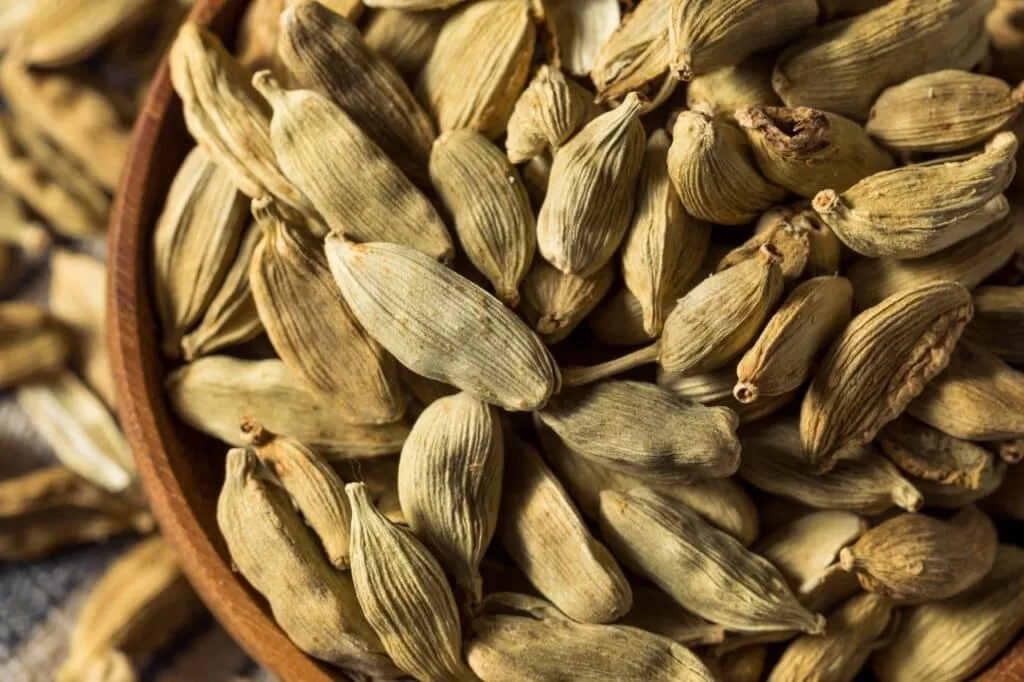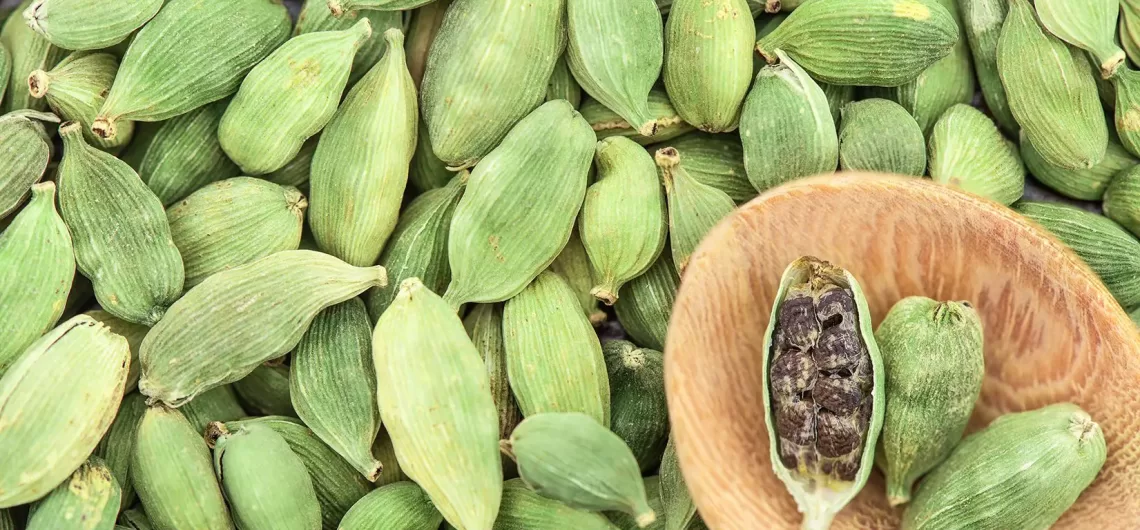History of Cardamom
Cardamom is a spice that has been used for thousands of years, primarily in India and surrounding regions, but also in other parts of the world.

Benefits of Cardamom
The spice is commonly used in cooking and is also known for its medicinal properties. Here are some of the potential benefits of cardamom:
- Anti-inflammatory properties: The spice contains compounds that have anti-inflammatory properties, which can help reduce inflammation throughout the body. This can help alleviate conditions like arthritis and asthma.
- Antioxidant properties: It is is rich in antioxidants, which can help prevent damage to cells caused by free radicals. This can help reduce the risk of chronic diseases like cancer, diabetes, and heart disease.
- Blood sugar control: Cardamom has been shown to have hypoglycemic properties, which can help lower blood sugar levels. This can be beneficial for people with diabetes.
- Culinary uses: It is used as a spice in both sweet and savory dishes, and is a key ingredient in many Indian, Middle Eastern, and Scandinavian cuisines. It can be used whole, crushed, or ground, and adds a warm, sweet, and floral flavor to dishes like curries, rice dishes, baked goods, and tea.
- Digestive aid: It is often used as a natural remedy for digestive issues like bloating, gas, and constipation.
- Respiratory health: It is often used as a natural remedy for coughs, colds, and bronchitis. It is thought to help relieve congestion, reduce inflammation in the respiratory tract, and promote healthy breathing.
- Oral health: It has natural antibacterial properties and is used to freshen breath, promote oral health, and prevent infections in the mouth. It is also believed to help prevent cavities and gum disease.
- Aromatherapy: Cardamom essential oil is used in aromatherapy to promote relaxation, reduce stress and anxiety, and improve mood. The oil can be diffused in a room, added to a warm bath, or used in massage oils to help soothe and calm the mind and body.
Side Effects
Consuming large amounts of cardamom or using it in supplement form may lead to some side effects.
Here are some of the potential side effects:
- Allergic reactions: Some people may be allergic to cardamom and experience symptoms such as hives, itching, swelling, and difficulty breathing.
- Gastrointestinal issues: Consuming large amounts of cardamom may cause gastrointestinal problems such as stomach pain, nausea, and diarrhea.
- Low blood pressure: Cardamom may lower blood pressure.
- Interference with medications: It may interact with certain medications, such as blood-thinning drugs, and interfere with their effectiveness.
- Risk of bleeding: The spice may also increase the risk of bleeding, especially when used in large amounts or in supplement form.
- Oral health issues: Chewing cardamom pods or consuming cardamom supplements may cause tooth decay or erosion.
